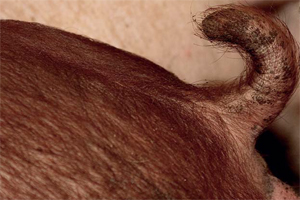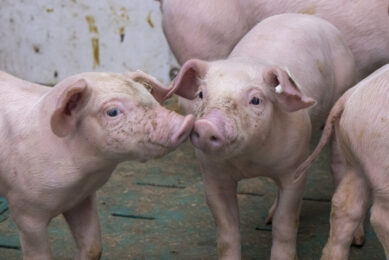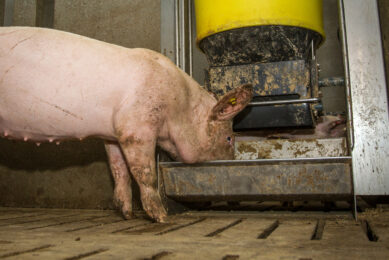Dutch pig industry aims to stop tail docking

The pig industry in the Netherlands has taken steps to stop the practice of tail docking.
On behalf of the pig sector, the Dutch Union of Pig Producers (NVV) and the Dutch Agri & Horticultural Organisation (LTO) state that they aim to end tail tocking in the long term, step by step, and on the condition that it can be done responsibly.
This, in short, was the essence of a declaration, presented to Dutch agricultural minister Sharon Dijksma on Monday. The initiative is supported by companies, institutes and organisations like animal feed producer Coppens www.coppens.nl, Topigs www.topigs.com, the Royal Netherlands Veterinary Association (KNMvD) www.knmvd.nl, Vion www.vionfoodgroup.com, the Dutch animal welfare organisation Dierenbescherming www.dierenbescherming.nl and Wageningen University & Research Centre www.wur.nl.
Those signing the declaration aim to research solutions against tail biting in existing farm houses and research feasible and affordable novel housing concepts, in which tail docking will be needed less – or not at all.
Networks
In addition, networks will be set up to to guide pork producers to lower tail docking figures. These networks will be supported by feed advisors, vets and slaughterhouses. Knowledge and experience shall be exchanged.
At the moment, Dutch pork producers get discounted for pigs with bitten tails or infections as a result of biting – but there is no bonus for sending non-tail docked pigs to the market. In 2011, it was estimated that 2.1% of pigs in production in the Netherlands suffers from tail biting. This equals a loss of €8 million in regular pork industry.
The problem of tail docking is considered multifactorial, with genetics, feeding, climate and distraction material named as potential contributing factors.
The Dutch pig industry also aims to stop castration by January 2015. This attempt was followed by a European initiative to voluntarily stop castrating pigs by 2018.
Also read & watch:











